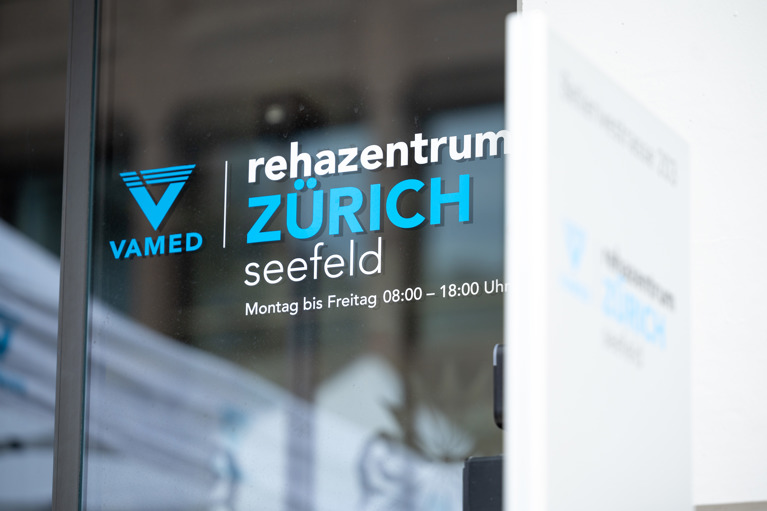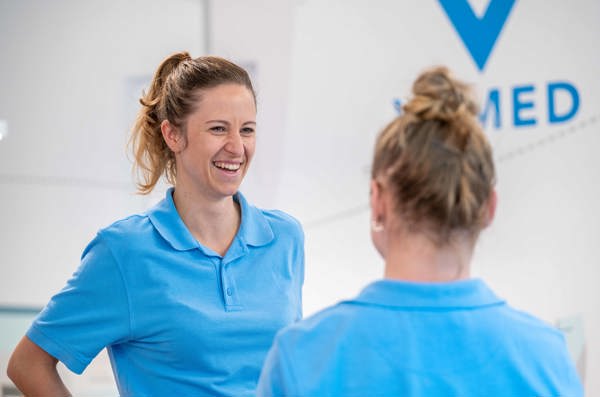

Consultation with a specialist in neurology
An ideal therapy setting includes consultations with your specialist, although rehabilitative consultations are also possible. A comprehensive initial examination and support from the diagnosis to the rehabilitation measures are central to this. This enables us to react quickly to the patient's state of health.
Cerebral palsy
For children with cerebral palsy (CP) who reach adulthood, there is a regional and supra-regional care service provided by Dr. Christian Kätterer at the Rehazentrum Zürich Seefeld. This is a specialist long-term consultation service together with therapeutic care that meets the need for ongoing support. Patients are treated individually and with various healthcare providers.
The specialized medical treatments are as follows:
- Consultation
- Indication and referral to specialized clinics
- Botulinum toxin
- Dysphagia diagnostics in collaboration with speech therapists
- Neuropsychological diagnostics, determination of indications in the context of transition
In addition to medical services, long-term care also includes therapeutic care provided by the interdisciplinary team of therapists at the rehabilitation center. Appropriate therapeutic interventions are carried out in close consultation with the medical team.
Particularly in the case of botulinum toxin treatment, it is important to accompany the treatment with an intensive therapy block in order to maximize the effect of the intervention. The transition into adulthood is also associated with psychosocial challenges, which can be accompanied by a combined therapy setting with the support of psychological psychotherapy.
As part of the transition to adulthood, there is a comprehensive administrative change of responsibility with corresponding expenditure in the insurance sector. The medical team and the site manager supported the patients in finding a suitable therapy setting and in communicating with the insurance company regarding cost approval.
Botulinum Toxin (BT) injection
BT can be used for the following indications:
- Dystonia (cranial, cervical, pharyngeal, spasmodic, segmental)
- Spasticity (after stroke, CP, paraplegic syndromes, MS)
- Other indications (chronic migraine, tremor, fibromyalgia)
BT blocks the mechanisms of the synapses at the end plate of the muscles highly selectively and effectively, leading to the “inactivation” of certain muscles in a dose-dependent manner. The activity of hyperactive muscles can thus be regulated. This is often used for neurological indications with the aim of reducing pain, improving joint mobility in the short term and increasing the effectiveness of long-term therapy. The treatment is carried out with a nursing indication and/or functional therapeutic indication according to strict guidelines. Objectives (goal attainment) are defined in advance with the patient and relatives as well as internal or, if necessary, external therapeutic participants.
The effect of BT usually begins 4 - 7 days after the injection and reaches its maximum effect 2 - 4 weeks later. The effect subsides after approximately 2 - 3 months, with patients perceiving the optimal usable effect for different lengths of time.
Experience has shown that patients benefit most from BT treatment in combination with intensive physiotherapy or occupational therapy. BT treatment and the individual therapy setting are always determined together with the doctor and the therapy. A treatment protocol accompanies each patient individually.

CONTACT
For more information and registration contact the therapy staff directly.
VAMED Rehazentrum Zürich Seefeld
Therapy staff
Phone: +41 58 206 08 40
E-Mail: info@vamed-rehazentrum.ch



